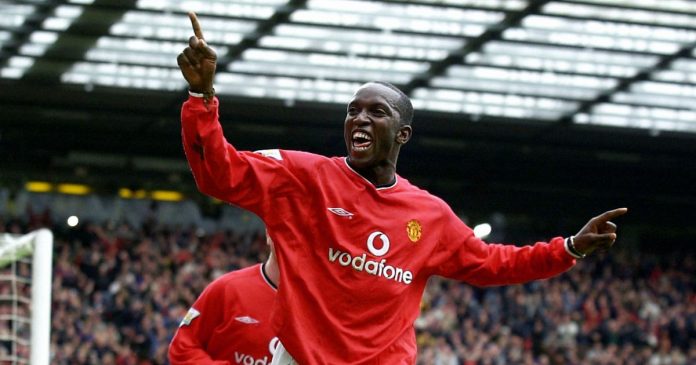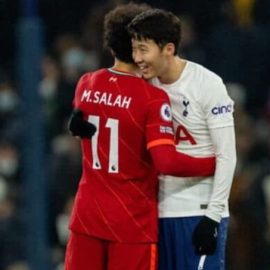We’ve all experienced it.
You’re watching a Premier League game, taking in the glorious spectacle. Perhaps you’re supporting one of the teams, or perhaps your betting slip is. You’re in it to see the greatest players on the planet strut their stuff, and you’re starting to really enjoy it when BAM! Up steps the referee to make the mind-squishingly insane decision to send a player off for practically nothing.
Instantly, the ref has ensured that the attention of the thousands in attendance and the millions watching at home is turned away from the players and onto his preening self. It happens at least once a week, and it’s infuriating.
One person who agrees with me is Tony Cascarino, discussing the Tottenham-Arsenal match:
Perhaps Emmanuel Eboué’s two yellow cards were warranted, but I hate it when referees make decisions that destroy the spectacle.
Damn straight, Cas. There is a serious problem that all referees share: they’re referees. They simply do not understand football. These people have a responsibility to the game: to ensure that “the spectacle” takes precedence over all.
They can drone on all they like about how there is a set of rules to which the participants must adhere in order for the contest to proceed in a fair and safe manner. This just shows how little they know or care about the sport they are meant to be serving. They are paid to do a job, and as anyone knows, once you receive money to do something, it behooves you to do it infallibly. Refs fail on this score repeatedly — yet they demand respect!
Cascarino, on the other hand, knows. He is one of the select few who have successfully made the journey from ex-professional footballer to professional ex-footballer. Thus, he can sense the truth from his observations of the game in a preternaturally instinctive way, like a shaman turning his face to the wind and divining the thoughts of the spirits. His conclusions may appear counter-intuitive, but that’s probably because you have not been made privy to the ancient wisdom that resides in those who have been on the inside.
He recognises that Eboué’s offences deserved — according to the “Laws of the Game” — bookings. But that is to ignore the greater truth. We don’t want to see the referees stepping in and grabbing the glory. We don’t want to see the post-match analysis and the newspaper headlines dominated by a policeman from Pudsey or a civil servant from Stourport-on-Severn. Remember, it’s about “the spectacle”, and the referee has no part in it. It should be up to the players and the manager to determine it. If they want to turn it into a swear-off or a martial arts exhibition, what business has the ref interfering?
The real issue is this: what can we do to improve the dire standard of officiating in the Prem? One suggestion is to publish each ref’s score as awarded each game by an assessor in the stand. This is initially tempting: it would be nice to have some kind of empirical basis for our diseased, frothing, gut-twisting abuse of the man in the middle. But there is a flaw: the assessors are former referees themselves. One must ask oneself how reliable such a system can be. It’s like cops investigating cops. Masonic cops.
The best idea so far put forward is that refs should be given the opportunity to explain their most controversial decisions at a post-match press conference. I agree with the spirit of this, but it needs to go further. What’s required is a method by which officials can be held properly accountable for their errors, presented in such as way that it would grip football supporters as well as attracting new people to the game. After much profound, Cascarino-esque meditation, I give you: The People’s Jury.
The concept is simple, and when I say simple I mean simple. Every Monday evening, the referee of each of the weekend’s Premier League matches would be brought forward and made explain their most contentious calls. The Jury would be made up of players (because they are the people who really matter), managers (because they are the people who really matter) and fans (because they are the people who really matter). If a ref’s testimony is deemed unworthy, he would be condemned to punishment. This could be the publishing of his home address and telephone number, the compulsory wearing of gimp suit and mask during his next game, being forced to address any England international as “sir” (actually, I think that’s already a rule) or, if he offends any of the Big Four, the ultimate punishment: being made to ref a crunch, end-of-season, top-of-the-table under-10s’ match, replete with baying parents.
The whole thing would double as one of those reality shows that children and women always go on about. Interest would be immense, and would add another few million to the Premier League’s television income, thus ensuring the clubs will be able to afford to pay still more lawyers to extract money from minor football federations for the use of their assets players. Everybody Wins!â„¢ (Everybody Winsâ„¢ is a trademark owned by the Football Association Premier League, Ltd.)
I don’t know if this is the best solution to the plague of atrocious refereeing. Scratch that: of course it is. But it may take more than this idea alone, however majestic it is, to turn things around. If you have any suggestions, please leave them in the comments. Better yet, contact your local legislator and demand that they act. Email them, call to their house, ring them every ten minutes until they agree. After all, whenever a referee makes a bad call; whenever he “sticks to the rules”; whenever he “destroys the spectacle” — it’s your dignity he’s killing; it’s your sensitivities he’s offending; it’s the souls of your dead relatives he’s playing hackysack with. Let’s do something, people.
Fredorrarci will be leading a march culminating in a protest rally in Soho Square this Friday. Proceedings get under way at noon sharp. Bring packed lunch. The revolution will be blogged at Sport Is A TV Show.
Add Sportslens to your Google News Feed!






